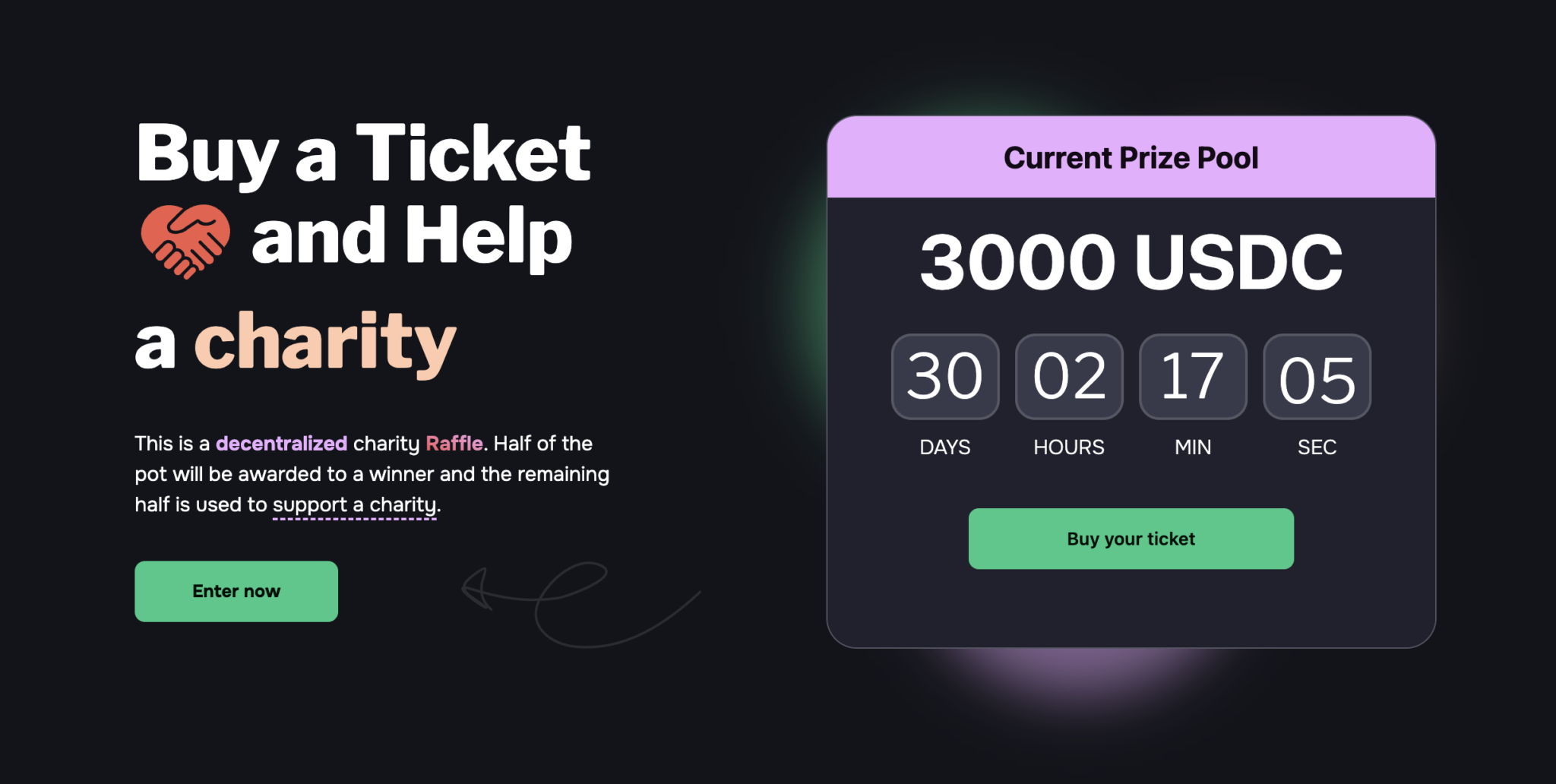from Jallrich@programming.dev to programming@programming.dev on 02 Oct 2024 16:17
https://programming.dev/post/20142486
Hey everyone!
I’m Javier, and I’m diving deep into the web3 space with my project, RafflChain. I’ve built RafflChain as a raffle platform, but I’m thinking about steering its future in a slightly different direction and would love your input.
How RafflChain Works:
- Launch: I deploy a smart contract for the raffle that’s set to end in one month. It all starts with a prize pool of 0 USDC.
- Buy Tickets: Users purchase tickets using USDC, which adds to the prize pool.
- Raffle Ends: Once the month is up, no more tickets can be bought.
- Donate: I check the total donations and create a donation on The Giving Block with the collected USDC.
- Distribute Prizes: The smart contract finalizes the raffle, giving 50% of the pot to a randomly selected winner, 45% to charity, and 5% to me to fund future raffles.
Why I Started RafflChain:
I’ve always liked raffles because there’s always a winner, unlike lotteries. Plus, I wanted to create something that gives back to the community. Seeing successful projects like Omaze and RaffleHouse inspired me to go for this idea.
Current Challenges:
ERC-20 Limitations
-
User Experience: Initially, I chose ERC-20 because “Win 2000 USDC” is straightforward. But now I’m reconsidering. Using ETH directly might make it feel more relatable, like “Win 1 ETH (~$2456).”
-
Approval Hassles: The two-step approval process for ERC-20 tokens feels clunky and a bit pushy. It might even look suspicious to some systems. Check this out for more on why this can be flagged.
Thinking of switching to native tokens to streamline the process and support multiple chains more easily.
What do you guys think about moving to native tokens instead of ERC-20?
Starting Pot Issues
-
Zero Starting Point: Starting the pot at 0 can be a turn-off for users. I don’t have the funds to manually boost the pool, which makes it harder to attract participants initially.
-
Alternative Approach: Instead of starting at 0, I’m considering setting an initial prize like 1 ETH that will only be awarded if we sell enough tickets to reach our first milestone. If we don’t hit the milestone, we’ll give half of the pot as the prize and the other half to charity, since we can’t provide the full promised prize. Additionally, if the pot reaches higher thresholds (e.g., 3 ETH), we can adjust the distribution to offer bigger prizes in future raffles.
What’s your take on these starting pot strategies? Any other ideas to make RafflChain more appealing?
Looking for Your Feedback!
I’m really keen to hear your thoughts on these changes. Whether it’s about moving to native tokens, adjusting the prize pool strategy, or anything else, your feedback will help shape RafflChain into something awesome.
Thanks a ton for your help!

threaded - newest
.
Your system will appeal to the intersection between people who like gambling and people who like donating to charities.
Even among them, I don’t see why anyone would prefer putting 100$ in your web3 thingie instead of just donating 50$, gambling with 45$, and buying a beer with the 5$ they would lose to you… well, there are a lot of
stupidpeculiar people (especially among crypto bros), so you might actually be ok.About the implementation, the 50% to charities should be transferred automatically… what’s the point of a smart contract if people must trust you to “check the total donations and create a donation on The Giving Block”?
PS:
IDK about the US, but where I live gambling is regulated very strictly: make sure to double check with a lawyer before getting into trouble.
This looks like a charity embezzlement scheme more than anything.